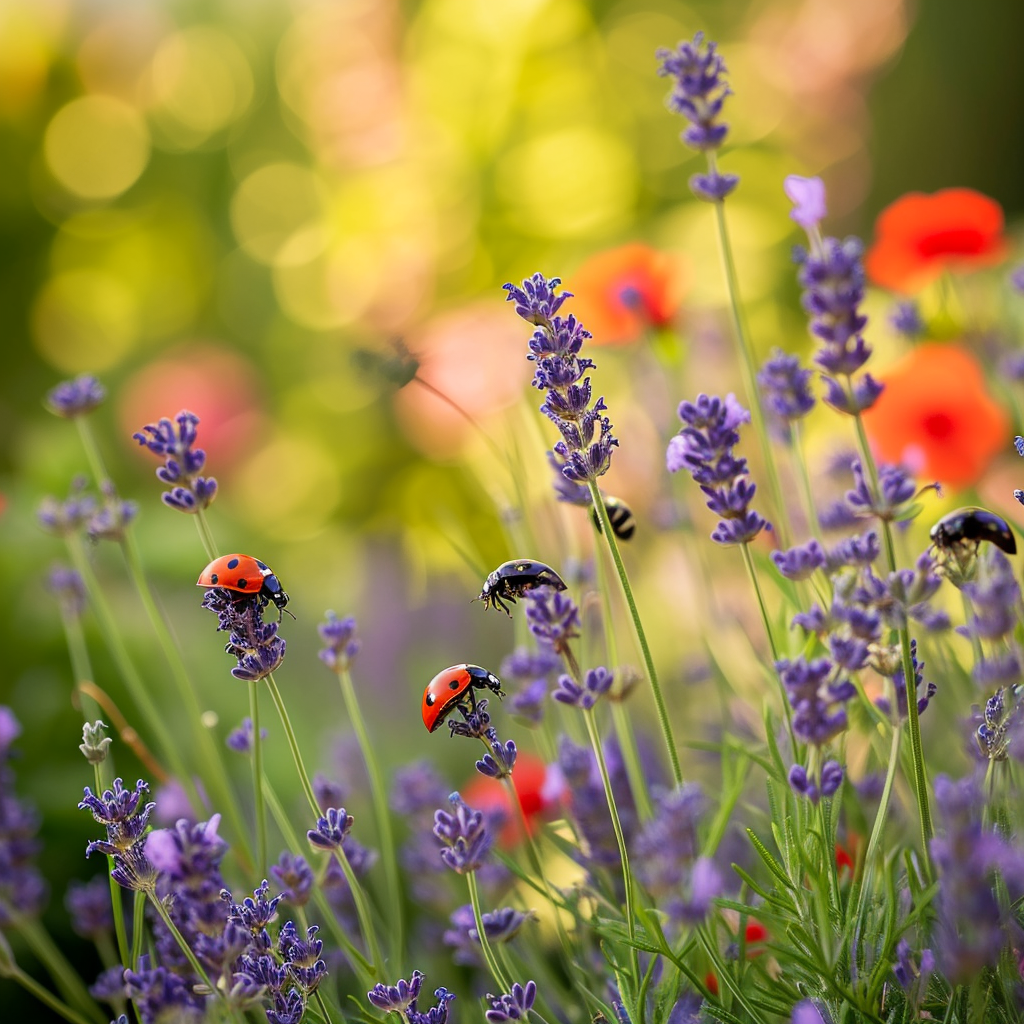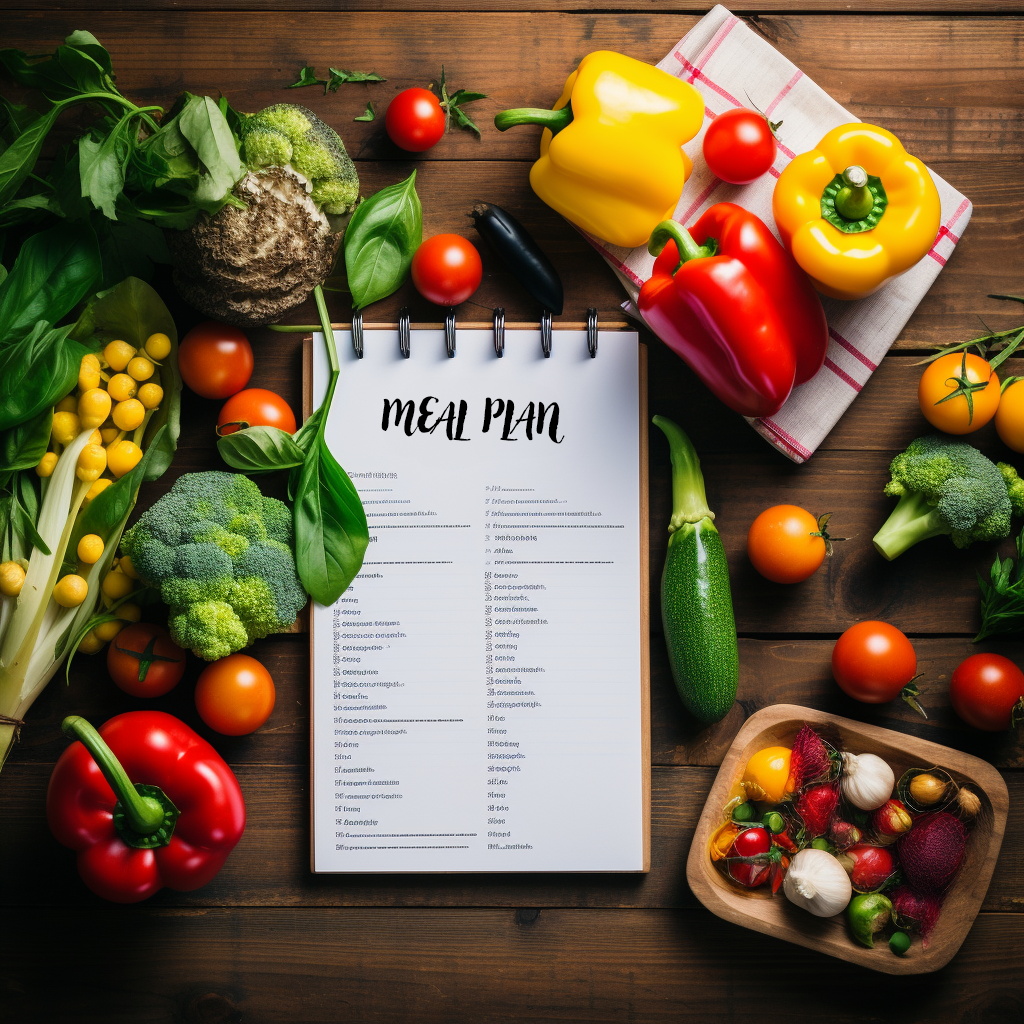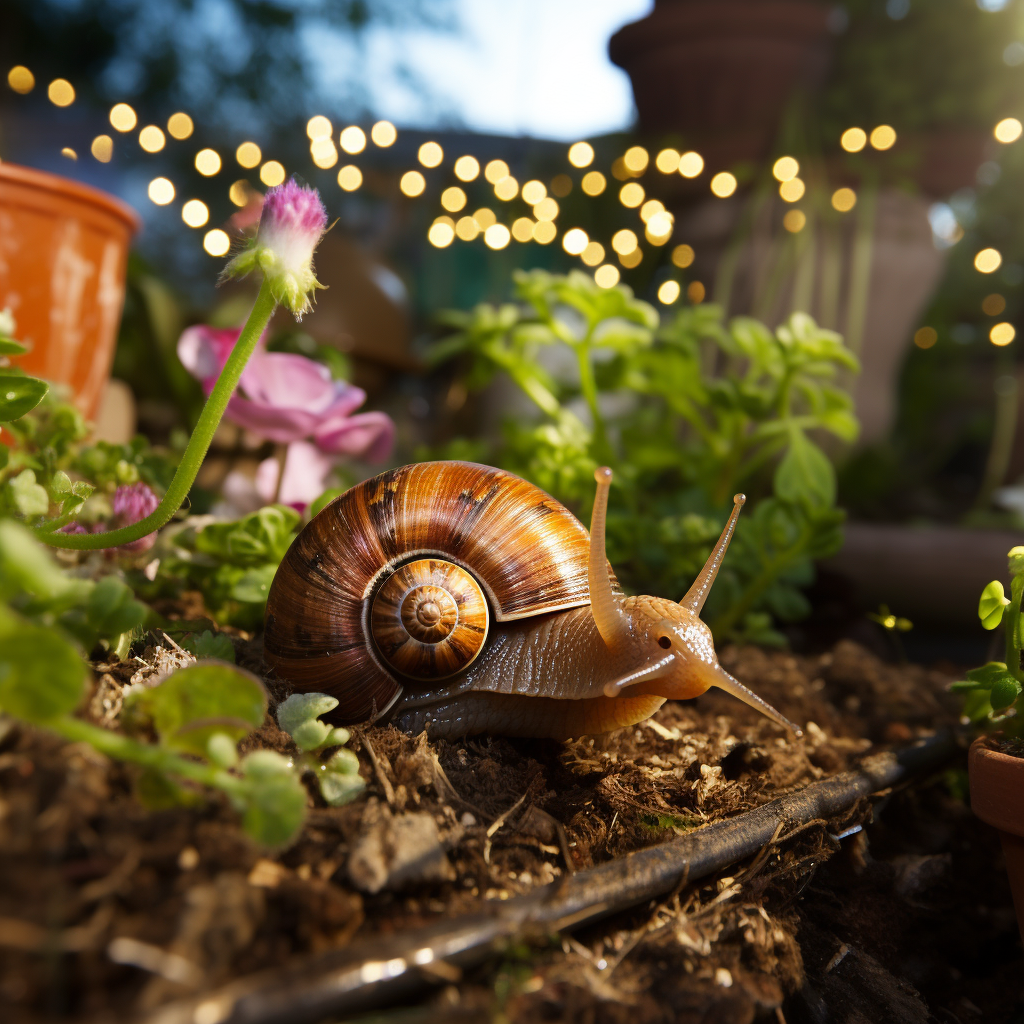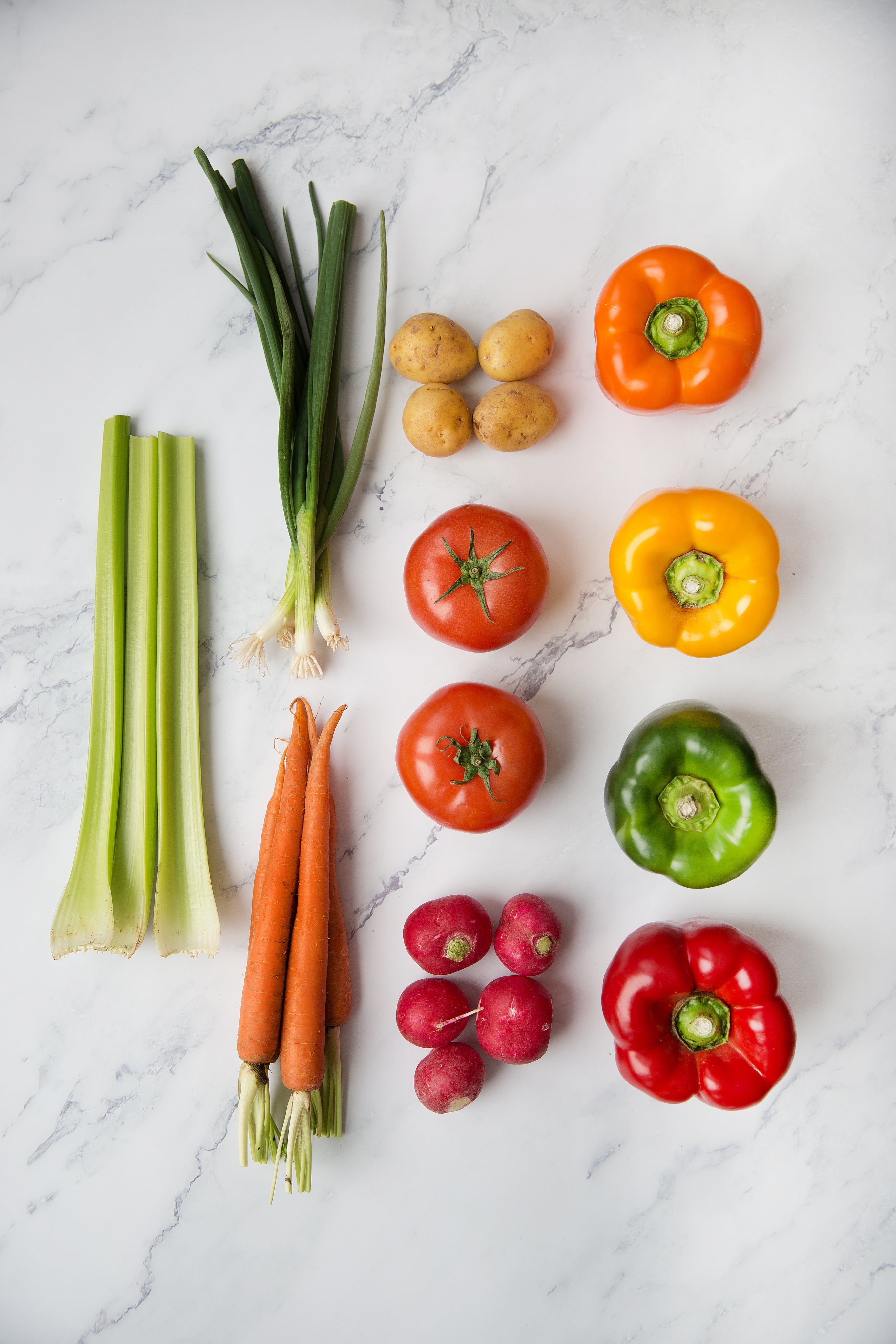Today it's all about sustainable gardening - a practice that not only benefits our earth, but also ourselves. We'll show you how you can use simple steps to make your garden, balcony or terrace more environmentally friendly.
Composting – gold for your garden

The magic of composting
Composting is like magic for the garden - turning waste into gold. No, not the shiny metal, but something almost as valuable to gardeners: rich, nutrient-rich soil. But how does this magic work and why is it so important?
Why compost?
Every year we throw away vast amounts of organic waste that ends up in landfills where it produces methane gas, a potent greenhouse gas. If we compost this waste instead, we not only reduce our ecological footprint, but also enrich our soil. Compost improves soil structure, promotes the growth of beneficial microorganisms, and helps keep plants healthy.
What can be composted?
Almost all organic kitchen waste is suitable for compost. This includes vegetable scraps, fruit peels, coffee grounds, eggshells and even shredded pieces of paper or cardboard. However, avoid meat, fish, dairy products and oily foods as these can attract unwanted odors and pests.
The perfect compost heap
Starting a compost pile is easier than you think. Choose a shady spot in your garden or, if you don't have a garden, a compost bin for your balcony. Alternately layer green (wet, nitrogen-rich) and brown (dry, carbon-rich) materials. A balanced mixture ensures efficient decomposition. Be sure to turn the compost regularly to add air and speed up the decomposition process.
Patience pays off
Composting is a slow process. It can take several months for your kitchen scraps to become valuable compost. But patience pays off. Soon you'll have a rich, earthy substance that your plants will love.
Your contribution to the planet
By composting, you are actively contributing to environmental protection. You reduce waste, improve your soil and support local biodiversity. It's a simple but powerful way to make your garden and the world a little greener.
Rainwater utilization – storing valuable water

The value of rainwater
In a world where clean water is increasingly becoming a precious resource, using rainwater is a simple but effective way to garden sustainably. It's not just about saving water, it's also about giving your plants the best.
Why use rainwater?
Rainwater is soft and free of the chemicals and minerals found in tap water. It is ideal for plants, improving growth and reducing the impact on the environment and your water bill. The collected rainwater can be a valuable reserve, especially in dry summer months.
This is how you collect rainwater
Rainwater harvesting can be as simple or as sophisticated as you like. A simple rain barrel is enough to collect water from your roof or balcony. Be sure to use a filter to keep leaves and debris out. In some regions there are even funding programs for the installation of rainwater collection systems.
Larger systems for ambitious gardeners
If you have more space and want to further increase your water independence, you can consider larger cisterns or even underground tanks. These can store enormous amounts of rainwater, which is particularly useful in areas with water scarcity.
Maintenance and Care
Make sure to clean your rainwater collection system regularly to avoid contamination. A well-maintained system can function efficiently for years.
A contribution to ecological balance
By collecting and using rainwater, you help maintain the natural water balance. Not only do you relieve the burden on the municipal water supply, but you also support the local ecosystem. It's a small step with a big impact for a more sustainable future.
Natural pest control – say no to chemicals

A garden without poison
Chemical pesticides may be effective, but they often do more harm than good - they kill beneficial insects, pollute the environment and can even be harmful to humans. Fortunately, there are natural and sustainable alternatives to keep pests at bay.
Harness the power of nature
Many plants have natural defense mechanisms against pests. For example, lavender and thyme, which repel many insects with their strong scent. Placed between your vegetable plants, these herbs can form a natural protective shield.
Welcome beneficial insects
Instead of fighting pests, you can invite their natural enemies. Ladybugs, lacewings and certain species of wasps are excellent natural pest controllers. By planting flowers and herbs that attract these beneficial insects, you can create a healthy ecosystem in your garden.
Home remedies for pests
There are also numerous home remedies that can be used against pests. For example, a mixture of water and dishwashing liquid can be effective against aphids. Garlic or chili sprays are also popular, eco-friendly pest deterrent options.
Prevention is the best protection
The best way to keep pests away is prevention. Healthy, strong plants are less susceptible to infestation. Make sure you have balanced soil conditions, enough light and water, and good air circulation between your plants.
A harmonious balance
Natural pest control does not aim to eliminate all insects, but rather to create a balance. It's about creating a healthy ecosystem where pests are naturally regulated.
Recycled materials – creative and environmentally conscious

The second spring for old materials
Recycling in the garden goes far beyond simply reusing materials. It is an art form that combines creativity and environmental awareness. With a little imagination, old items can be turned into useful and attractive garden features.
Rediscover old objects
Almost anything you have at home can start a second life cycle in the garden. Old pallets can be converted into stylish plant boxes. Used yoghurt pots are ideal as growing pots. Even broken tiles or stones can become a charming garden path or decorative elements.
The benefits of recycled materials
Using recycled materials in the garden has many benefits. On the one hand you save money, on the other hand you reduce your ecological footprint. It also promotes creativity and offers the opportunity to give your garden a very personal touch.
Creativity is required
The possibilities are limitless. An old bicycle can become a blooming garden display, empty wine bottles a colorful wind chime. Let your creativity run wild and create something unique.
Not only beautiful, but also functional
Recycled materials are not only decorative but can also be functional. An old hose can be converted into an efficient irrigation system. Used wooden boxes are perfect for raised beds.
Everybody can participate
The great thing about recycling in the garden is that everyone can get involved. No special skills or expensive materials are required. All you need is a little creativity and a willingness to give things a second chance.
Permaculture Principles – Gardening Intelligently

Permaculture is a concept that aims to create sustainable and self-sustaining ecosystems. It's about working with nature, not against it. In permaculture, every aspect of the garden is designed to function in harmony with the environment.
The basics of permaculture
The core principles of permaculture include diversity, mimicking natural ecosystems, and creating cycles that minimize waste and use resources efficiently. This means selecting and placing plants so that they support and strengthen each other.
Herbal Spirals – A perfect example
An herb spiral is an excellent example of small-scale permaculture. It uses vertical space and creates different microclimates in a small space. Herbs that prefer different conditions can be planted in the spiral - from moist and shady at the bottom to dry and sunny at the top.
Perennial planting systems
Another aspect of permaculture is perennial planting systems. Instead of planting new plants every year, perennial plants are used that will thrive for years. This saves work and resources and promotes a stable ecosystem.
Permaculture in everyday life
You can also apply permaculture principles on a small scale. Whether it's choosing plants to naturally repel pests or adding layers of mulch to conserve soil moisture, there are many ways to incorporate permaculture into your garden.
A step towards a sustainable future
By applying permaculture principles to your garden, you are contributing to a more sustainable future. You create a space that is not only beneficial for you, but also for the environment.
Conclusion – Every step counts
In our pursuit of a greener, more sustainable life, our own garden, balcony or terrace plays an important role. As we've seen today, there are many ways to incorporate sustainable practices into our garden design. From composting our kitchen scraps to collecting rainwater, using natural pest control methods, using recycled materials, and incorporating permaculture principles, each of these steps helps reduce our environmental footprint.
These methods are not only good for the environment, but also for our soul. There is a deep sense of satisfaction and pride when we see our garden thriving while doing something positive for our planet. And let's not forget that sustainable gardening is also a wonderful way to connect with and learn from nature.
So let's embrace these practices, experiment and share our experiences with others. Every step, no matter how small, is a step towards a more sustainable and greener world. Until next time, stay green and creative!






